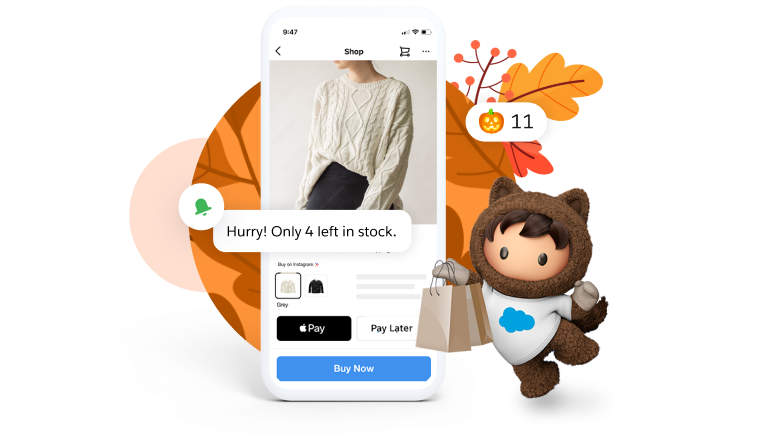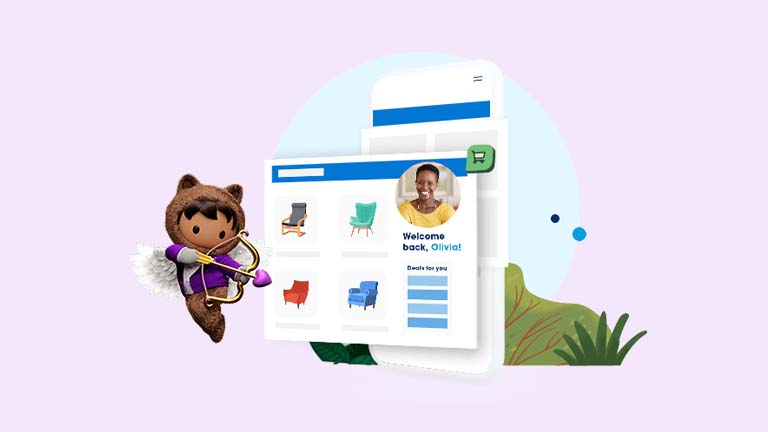Chapter 5: Deepen business relationships.
Strong B2B relationships will help retailers weather uncertainty.

Provide transparency and drive agility.
Right now, 70% of retailers and 58% of suppliers cite limited data transparency as the biggest barrier to collaboration. Set yourself apart by actively sharing information with partners on your supply chain. When you adopt a single source of truth, you can minimise out-of-stocks and build more accurate demand forecasts. You can also deliver customer demographics and store-level sales information, giving suppliers valuable insights.
Modern order management capabilities enable you to connect back-end systems with order data. You can visually manage workflows and maximise the supply chain with inventory APIs that give a real-time view of your inventory. Orders are processed quickly with automated fulfillment, payment capture, and invoice creation. That’s the kind of transparency that drives smarter decision-making, customer loyalty, and revenue.
Deliver a consumer-grade buying experience.

– Kathleen Hachmeyer, Director of Technological Innovation, FILA
Promote sustainability across your value chain.
Not only do 93% of global consumers expect the brands they buy to support social and environmental issues, buyers are under pressure to do business with organisations that have committed to sustainability principles. Today, that means more than greenwashed marketing messages. Instead, sustainability must be an initiative owned by the enterprise and data-driven, with visibility and accountability across the entire ecosystem.
Sustainability is more than brand differentiation; it’s about brand survival. Show buyers your business has considered the environmental and social impacts of your operations and supply chain. Avoid greenwashing: Instead, stay transparent about data. Use carbon accounting to calculate the progress you’ve made on your change journey for internal and external stakeholders.
Take the next step on your 2022 holiday planning journey.
The only thing that’s changing faster than consumer preferences is the economy. As retailers look to efficiency and automation to drive profitability and prepare for spikes in demand, they need to be ready for anything.
The challenge? Creating a winning holiday strategy takes more than introducing curbside pickup or posting on Instagram. This year, success means a robust first-party data strategy, a seamless customer experience across physical and digital channels, and associates who are empowered to serve customers efficiently. In short, retailers must prioritise flexibility and convenience like never before. And that means putting the customer at the centre of every decision they make.
More Resources

Acquire and Engage Loyal Customers

Extra “At your service!” anytime, anywhere.







